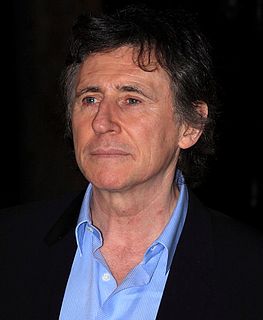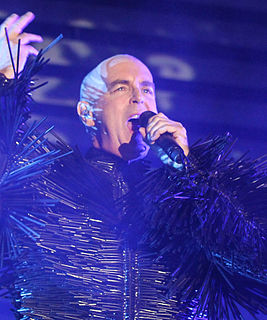A Quote by Gabriel Byrne
Generally speaking, I don't think people know a great deal about the Viking culture, apart from the label that is usually attached to them, either pillagers or deviants who came and brought back loot to Norway. It was an incredibly sophisticated, complex and layered culture. They had their own laws, many of which protected women.
Related Quotes
Viking women, if they were left behind, were ruling their town. They were earls in their own right; they owned land in their own right. They could divorce their husbands if they wanted to. All of those wonderful allowances that were made for women in the Viking culture weren't really part of the Christian culture at the time.
My interest in culture generally is a comparative one, and I think that's where the word joy, I think, can be applicable. There's joy in actually seeing the relatedness, the connectedness of different cultures or recognising, for instance, your own culture in another or another culture in your own culture and feeling an air to all of them.
Transcendence or detachment, leaving the body, pure love, lack of jealousy-that's the vision we are given in our culture, generally, when we think of the highest thing. . . . Another way to look at it is that the aim of the person is not to be detached, but to be more attached-to be attached to working; to be attached to making chairs or something that helps everyone; to be attached to beauty; to be attached to music.
I see The Gap ads as being a great example of how branding has changed. Those Gap campaigns are pop culture. They've been incredibly powerful. They have had the kind of effect on culture that a hit band has. Just look at The Gap's Khaki swing ads, which were music videos. They had this tremendous impact on the industry - suddenly everything started looking like Gap ads and it became difficult to know who was co-opting whom and who was creating culture.
The nineties as a pop cultural sphere was a really fertile time for feminism that was grounded and located in popular culture. I'm talking about before the Spice Girls - Sassy Magazine, riot grrrl, the Beastie Boys, Nirvana. You had this alternative culture that was very much speaking up on behalf of women and in favor of women.
There is a certain amount of righteous indignation I hold for the American culture, because to get back to the real root of it, to get broader about it, my opinion that is my species - and my culture in America specifically - have let me down and betrayed me. I think this species had great, great promise, with this great upper brain that we have, and I think we squandered it on God and Mammon. And I think this culture of ours has such promise, with the promise of real, true freedom, and then everyone has been shackled by ownership and possessions and acquisition and status and power.
We do have a big kind of history in literate tradition of Vikings and we have a lot of Viking blood in Scotland, I mean especially up north wherever you go you see a plastic Viking sitting outside a shop and Viking calendars and - because they - you know they came down and stole all our chicks and then some of them didn't quite get back and ended up settling down here. So there's a lot of Viking blood in Scotland.
There is a resentment and rejection of liberal culture. That culture is not available to many people in America. And the liberal coastal elite, who may never have been to rural America, just think everyone there is racist and homophobic and judge them to be terrible people. They think there is nothing wrong to be making jokes about 'meth heads', who are actually a group of people with poverty-related drug issues. They don't see their own hypocrisy. I think this is a huge issue and one that cannot be ignored.
Many teachers of the Sixties generation said "We will steal your children", and they did. A significant part of America has converted to the ideas of the 1960s - hedonism, self-indulgence and consumerism. For half of all Americans today, the Woodstock culture of the Sixties is the culture they grew up with - their traditional culture. For them, Judeo-Christian culture is outside the mainstream now. The counter-culture has become the dominant culture, and the former culture a dissident culture - something that is far out, and 'extreme'.




































